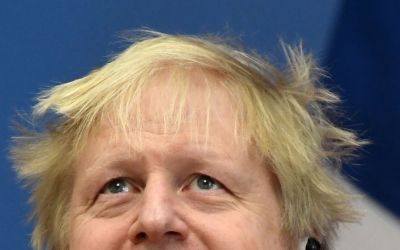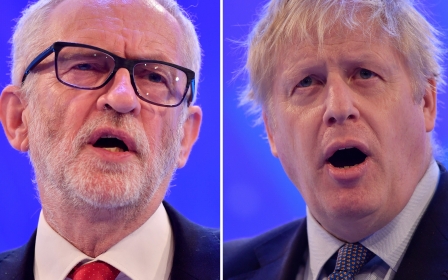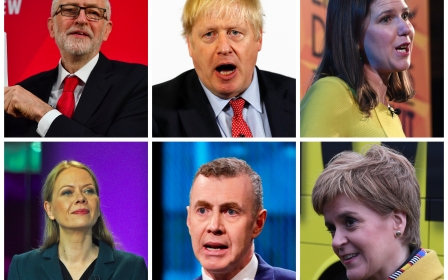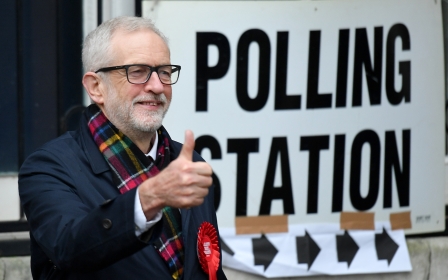UK election results: Boris Johnson's Conservatives heading for landslide win
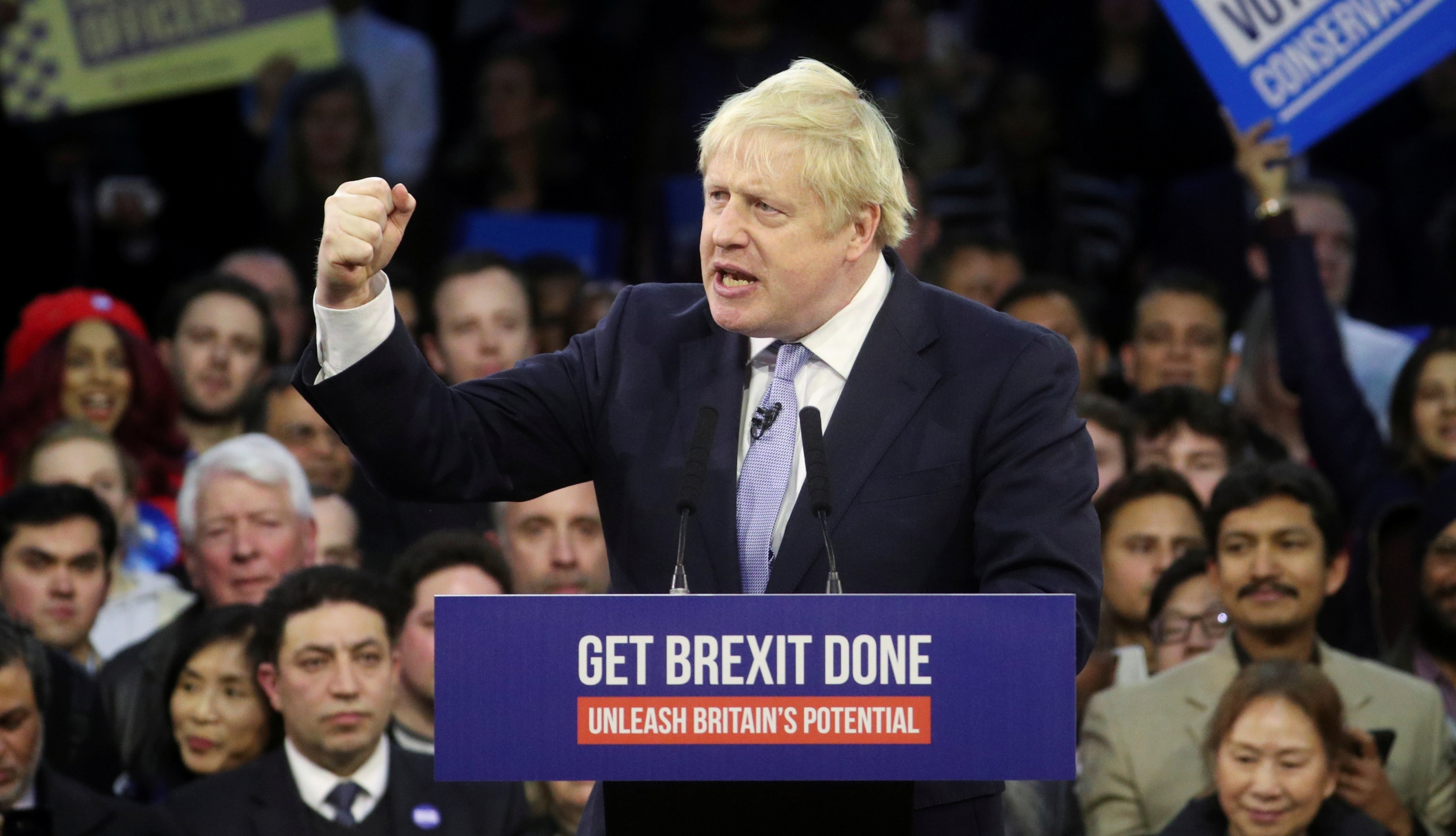
British Prime Minister Boris Johnson's Conservative Party appears on course to gain a large majority in Thursday's general election, according to exit polls and early results, giving him a mandate to press ahead with his promise to take the UK out of the European Union.
The Conservatives are on course to win 368 seats - enough for a parliamentary majority of around 86 and an increase of about 50 seats in the 650-seat House of Commons - with the main opposition Labour Party predicted to lose around 70 seats to fall back to less than 200.
If confirmed the results mark a heavy defeat for Labour's Jeremy Corbyn, a veteran left-wing backbencher who won the leadership in 2015 and had staked his campaign on the party's most radical manifesto in decades.
But Labour is now facing its worst result at the ballot box since the 1930s. One early confirmed result saw Labour lose Blyth Valley in northeastern England, a traditional mining community which it had represented since the constituency was created in 1950, pointing to a likely Conservative landslide.
"If it is anywhere near this it is extremely disappointing," John McDonnell, Labour's shadow finance minister and a key Corbyn ally, told the BBC.
New MEE newsletter: Jerusalem Dispatch
Sign up to get the latest insights and analysis on Israel-Palestine, alongside Turkey Unpacked and other MEE newsletters
Asked whether he and Corbyn would now stand down, McDonnell said: "We'll see the results in the morning and we'll make the appropriate decisions."
'Get Brexit done'
Johnson became prime minister in July 2019, replacing Conservative predecessor Theresa May who had lost the party's majority in the last election in 2017 and had subsequently been unable to deliver the UK's exit from the European Union due to parliamentary stalemate and opposition to her negotiated deal.
Johnson called the election after being thwarted by parliament in his own efforts to take the UK out of the EU and ran his campaign on a promise to "get Brexit done" by the end of January.
Parliament is required to approve the final terms of the UK's exit from the EU, which British voters narrowly supported in a 2015 referendum. A large Conservative majority would appear to give him the numbers to break the deadlock of the past two years.
In pressing for Brexit, Johnson alienated and forced Conservative moderates out of the party, adopting populist right-wing rhetoric which saw former colleagues accuse him of "inciting violence".
His leadership of the Conservatives has also been dogged by complaints that the party has failed to get to grips with Islamophobia within its ranks, with Johnson himself blamed for an increase in hate crime attacks against Muslim women after comparing women who wear the niqab to "letter boxes" and "bank robbers" in a newspaper column which he wrote in 2018 when he was not a member of the government.
Johnson is seen as a close ally of US President Donald Trump and has talked about securing a future trade deal with the US. Israel and the Gulf states are also likely to be British targets for post-Brexit trade deals.
Gaffe-prone
As foreign secretary from 2016 to 2018, Johnson was seen as gaffe-prone. He was accused in 2017 of undermining diplomatic efforts to free a British-Iranian woman held in Iran on espionage charges after saying that she was teaching people to be journalists. He later retracted the comments.
In the same year, he commented that Libya's war-stricken city of Sirte could be a "new Dubai" once the dead bodies had been cleared up. Johnson subsequently apologised.
Labour's campaign was damaged by criticism accusing Corbyn of failing to tackle antisemitism in the party, which led to several MPs quitting the party, condemnation of Corbyn by the UK's chief rabbi, and Labour being referred to the UK's equalities watchdog.
Supporters of Corbyn, a longstanding advocate for Palestinian rights, complained that his campaign was also undermined by hostile media coverage.
Writing for MEE on Thursday, political commentator Peter Oborne said that Corbyn had been subjected to "character assassination" on a scale unprecedented in British political history.
"He is one of a handful of British politicians who has repeatedly tried to do the decent thing. He deserves credit for the determined and morally courageous way he’s conducted himself," Oborne wrote.
While the Conservative manifesto was light on foreign policy commitments affecting the Middle East, Labour had pledged to ban arms sales to Saudi Arabia and Israel over human rights abuses in Yemen and the occupied Palestinian territories.
The Scottish National Party, which opposes the UK's exit from the EU and wants a referendum on Scottish independence, is set to be the third largest party in parliament with a predicted 55 out of 58 seats in Scotland.
Middle East Eye delivers independent and unrivalled coverage and analysis of the Middle East, North Africa and beyond. To learn more about republishing this content and the associated fees, please fill out this form. More about MEE can be found here.


